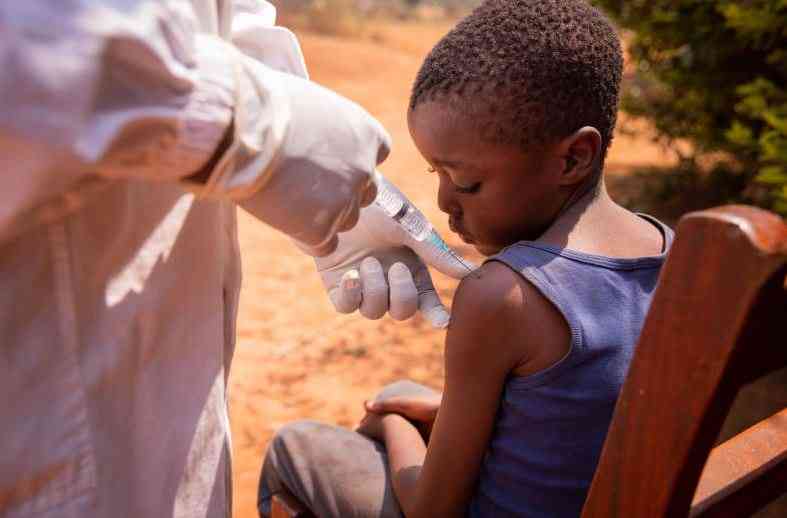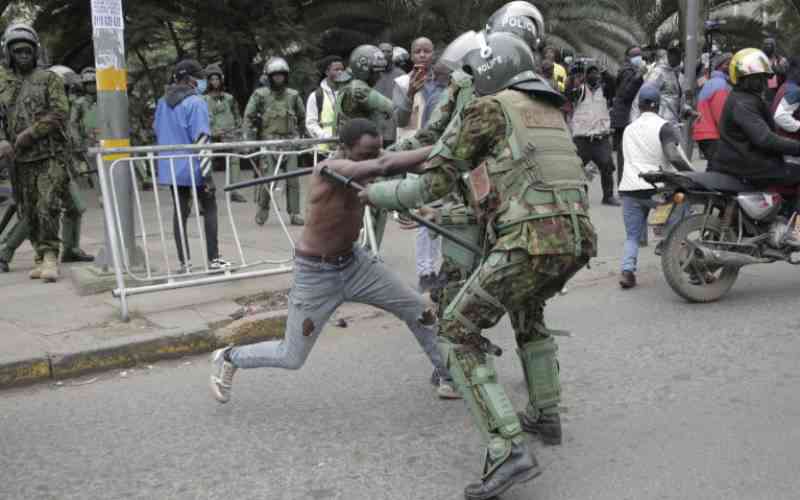Immunisation Funding Call in Istanbul Could Lead to Vaccine Shortages in Kenya

As Kenya commemorates Immunisation Week alongside the world, legislators from Africa and Asia convened in Istanbul to advocate for sustainable immunisation financing in their respective countries. This two-day forum, organized by the Global Health Advocacy Incubator (GHAI) with support from the Vaccine Alliance, Gavi, marks a significant step in parliamentary advocacy for public health.
The meeting occurs at a critical juncture, with Kenya's vaccine supply facing uncertainty due to the government's failure to meet a Sh1.6 billion co-financing agreement with Gavi. The forum gathered 21 Members of Parliament (MPs) from Africa and Asia, including representatives from Kenya. GHAI emphasized the unique role of parliamentarians in government, recognizing them as voices of their constituents and crucial oversight bodies for executive actions. Their ability to influence policy, allocate budgets, and hold governments accountable makes them indispensable in the fight against vaccine-preventable diseases.
Vandana Shah, Vice President of Health Systems Strengthening at GHAI, highlighted the convergence of parliamentary leaders demanding their governments prioritize domestic immunization funding to reach every child, eliminate zero-dose children, and safeguard public health and global security. The forum included parliamentary champions from various countries, including Kenya, Cameroon, Cote d'Ivoire, Ghana, Laos, Liberia, Madagascar, Nigeria, Sierra Leone, and Zambia, many of whom serve on health committees or hold key positions in finance and national immunisation advisory groups.
Kenya’s Dr. James Nyikal, Chairperson of the National Assembly’s Departmental Committee on Health, attended the meeting, which aimed to foster collaboration, share effective strategies, develop actionable plans, and establish a parliamentary network focused on increasing political will and domestic resources for sustainable immunisation financing, particularly as countries navigate Gavi transitions and the Alliance’s 2026-2030 replenishment.
The forum concluded with the adoption of the Istanbul Parliamentary Call to Action for Immunization Financing, where parliamentarians urged their governments to adopt policies to mobilize domestic resources for immunisation and primary health care, meet Gavi co-financing obligations, establish transparent and sustainable long-term financing mechanisms, and support high-quality regional vaccine manufacturing to strengthen supply resilience. They also called on international partners and donors to continue robust investment in immunization, supporting Gavi's goal to raise $9 billion for its 2026-2030 period, vital for protecting 500 million more children, enabling responses to 150 disease outbreaks, and supporting the introduction of new life-saving vaccines.
Dr. Nyikal stressed the urgent need for the government to procure all essential childhood vaccines to prevent potential outbreaks. Hamzah Mangal Zekrya, Senior Manager of Strategic Partnership at Gavi, acknowledged the role of civil society organisations in voicing perspectives and noted that Gavi has helped immunise 1.1 billion children since 2000. Gavi's new network with parliamentarians aims to champion the right of every child to grow up healthy and protected from preventable diseases.
The Istanbul call to action serves as a commitment and challenge to ensure that the progress in global immunisation is maintained and accelerated. However, newborns in Kenya risk missing out on immunisation due to the potential failure to honor co-financing of Sh1.6 billion, which may lead to Gavi not supplying vaccines. Every year, while the ministry plans to vaccinate 1.5 million children, approximately 300,000 end up missing out. Affected childhood vaccines include Measles Rubella (MR), malaria, pneumococcal conjugate vaccines (PCV), Pentavalent, Human papillomavirus (HPV), Rota virus vaccine, Typhoid Vaccine (TCV) and Yellow Fever (YF). In a letter dated January 28, 2025, Gavi reminded the Kenyan government of its co-financing obligation for the 2024/25 fiscal year and warned that failure to pay by the June 2025 deadline could severely disrupt vaccine supply chains. Kenya has been experiencing persistent shortages of infant vaccines due to inadequate budgetary allocation.










